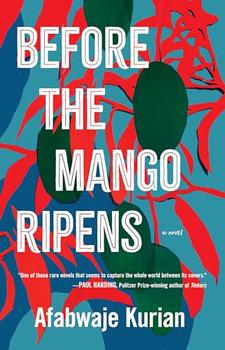
Ricki Lewis talks with BookBrowse about her book The Forever Fix: Gene Therapy and the Boy Who Saved It - a fascinating work of narrative science that explores the next frontier in medicine and genetics through the very personal prism of the children and families gene therapy has touched.
Ricki Lewis talks with BookBrowse about her book The Forever Fix: Gene Therapy and the Boy Who Saved It
Publication of The Forever Fix: Gene Therapy and the Boy Who Saved It by St. Martin's Press in March 2012 capped a 30-year career as a science/medical writer. Since earning my PhD in genetics in 1980, I've been author or co-author of several college life science textbooks for McGraw-Hill Higher Education; published thousands of magazine articles in everything from Playgirl to Discover to The Scientist; and published a short genetics book, an essay collection, and a novel. Since 1984 I've provided genetic counseling for an ob/gyn practice and taught at several institutions. I currently teach "Genethics" online for the Alden March Bioethics Institute of Albany Medical College, write news for Medscape Today, and guest blog for Scientific American. My blog, Genetic Linkage, is on my website, www.rickilewis.com.
Ricki Lewis, April 15, 2012
What inspired you to write The Forever Fix?
I was lucky enough to find the most amazing, true story. On a sparkling September Sunday in 2008, 8-year-old Corey Haas approached the entry gate to the Philadelphia zoo, using his cane, for he lived in a darkening world of shadows. Corey heard the other kids yelling about the big balloon, so he looked up - and screamed. It was the first time he'd seen the sun.
Four days earlier, Corey had undergone gene therapy at Children's Hospital of Philadelphia. A doctor had gently injected billions of viruses into Corey's worse eye, each virus harboring the gene that wasn't working in the boy.
His newfound vision was all the more startling because in that same city, nine years earlier, an 18-year-old had died of gene therapy, shutting down the field for years.
In the book, Corey's story brackets the ups and downs of gene therapy since the first experiment on a 4-year-old in 1990. I've followed the personal stories of the kids of gene therapy in one of my textbooks (Human Genetics: Concepts and Applications, now in its tenth edition) since the beginning. Many of the diseases are very serious; Corey's condition (Leber congenital amaurosis type 2) is more upbeat.
You've said that The Forever Fix has several themes. In addition to the narrative, what are the themes?
Pioneering women emerged as a powerful thread as the book unfolded. From physician Dr. Jean Bennett and neuroscientist Dr. Paola Leone, to veterinarian Dr. Kristina Narfstrom, to the incredible moms and fundraisers Lori Sames, Ilyce Randell, and the Salzman sisters, the book is a celebration of women overcoming hurdles to tackle inherited disease.
A second theme is the plight of families living with rare diseases - conditions so uncommon that pharmaceutical companies are hesitant to take them on, and parents must raise the funds to make clinical trials possible.
A third theme is animal research. Sheepdogs were the first to be cured of Corey's disease - and these animals get to go home with the kids they enable to see, as beloved pets.
Why is the book called The Forever Fix?
The title came from Lori Sames, whose 8-year-old daughter Hannah is one of 52 people in the world who has giant axonal neuropathy - like Lou Gehrig's disease in a child. Lori and I were at a fundraiser for Hannah's Hope Fund. People were taking turns carrying Hannah around, dancing to the music, and Lori looked at me, tears shining, and said about the gene therapy, "Ricki, if it works, it'll be a forever fix." When neuroscientist Paola Leone said much the same thing, I knew I had the title.
Gene therapy is a forever fix because it corrects the underlying defect that causes an inherited disease. It is, in the best situation, a one-time treatment - as it appears to be for Corey's eyes.

Hannah Sames and Corey Haas signing books
The diseases in the book are rare. Will gene therapy one day help people with more common illnesses?
Yes! Gene therapies start with rare diseases caused by single genes because those are the best understood. The idea is that once we learn how to correct a simple defect, we can apply the same approach to more common conditions, which tend to be caused by more than one gene and environmental influences.
Surgery similar to Corey's may be done on the 2 million people who have age-related macular degeneration. The gene therapy approach that Hannah will have may one day be used on the 8 million who have ALS, spinal muscular atrophy, or even spinal cord injury. The rare Canavan disease is a stand-in for multiple sclerosis, and the immune deficiency first treated with gene therapy in 1990 has led to today's successful gene therapy for HIV/AIDS.
What is your favorite part of the book?
It happened when the parallel stories I set out to tell started to link and intertwine. That's why the book reads like a novel, a genre called creative nonfiction, narrative nonfiction, or narrative science. Stories are much more fun to tell than writing textbooks!
The scene was the American Society for Gene and Cell Therapy annual meeting, in Washington DC in May 2010. Corey and his parents were onstage answering questions from Dr. Jean Bennett, who led the clinical trial. In the audience were 3000+ researchers who, after the death of the 18-year-old in 1999, never thought the biotechnology would get off the ground. Yet here was a boy cured of blindness. Many in the crowd were in tears. But I noticed Lori Sames, a vivacious woman who never stops networking and talking, struck speechless by Corey, absolutely still, the tears rolling down her face as she realized that if the boy could be saved, so could her precious daughter.
Unless otherwise stated, this interview was conducted at the time the book was first published, and is reproduced with permission of the publisher. This interview may not be reproduced or reprinted without permission in writing from the copyright holder.




Courage - a perfect sensibility of the measure of danger, and a mental willingness to endure it.
Click Here to find out who said this, as well as discovering other famous literary quotes!
Your guide toexceptional books
BookBrowse seeks out and recommends the best in contemporary fiction and nonfiction—books that not only engage and entertain but also deepen our understanding of ourselves and the world around us.